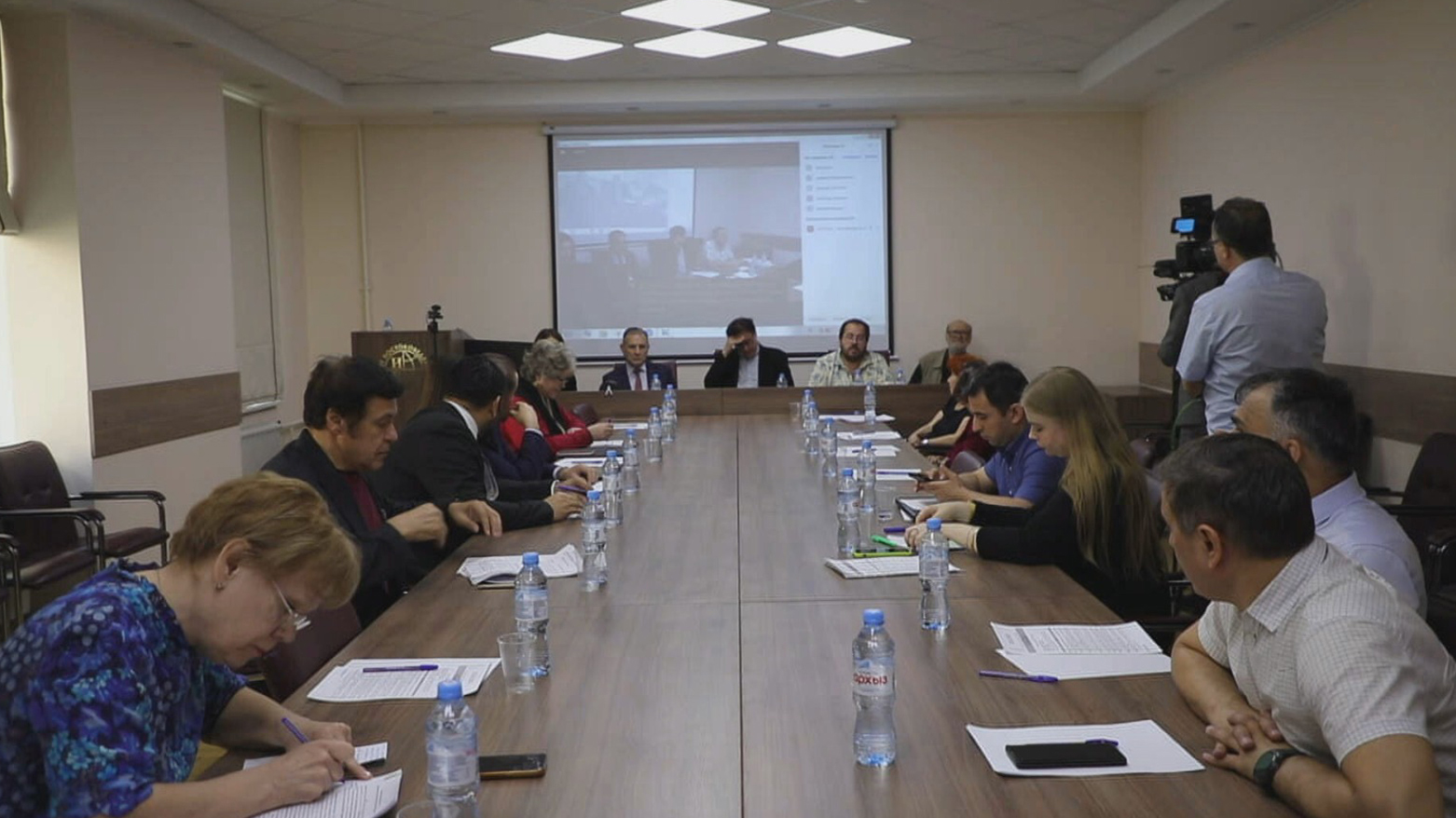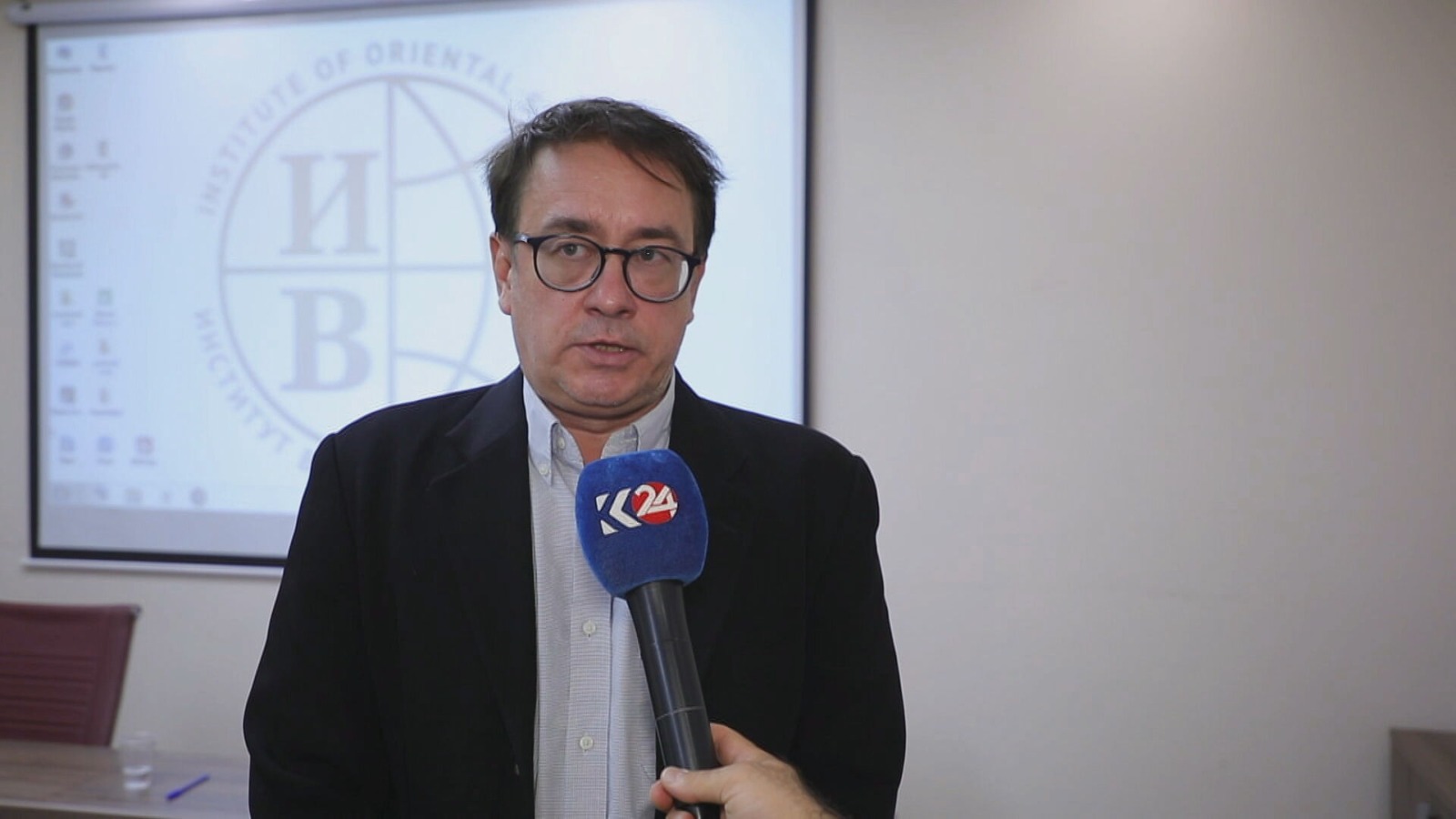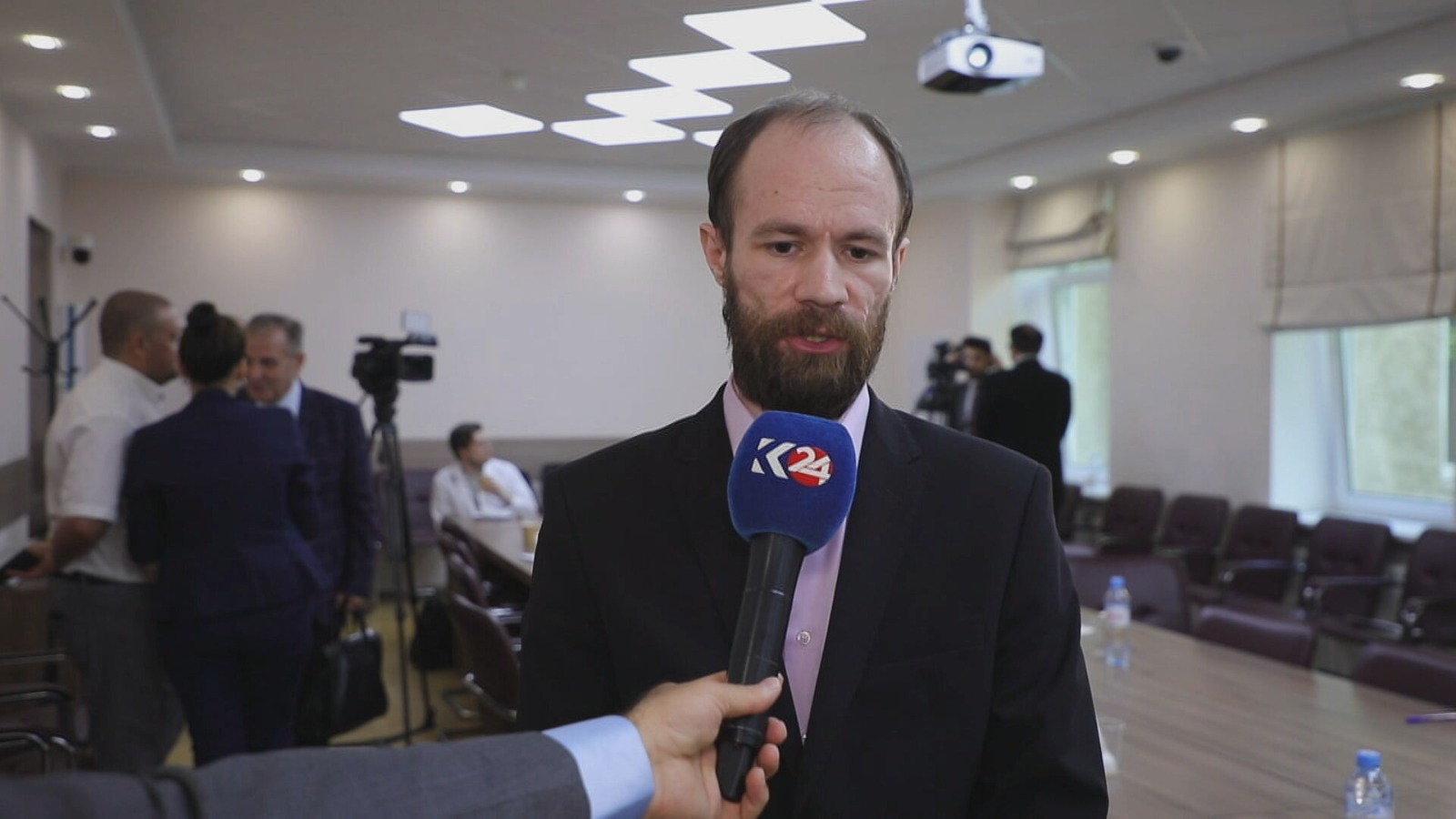Moscow Conference Commemorates Mikhail Lazarev’s Legacy and Reexamines the Kurdish Question
Supported by the KRG’s Moscow representation, the conference highlighted Erbil’s dedication to promoting Kurdish history and politics globally.

By Ahora Qadi
ERBIL (Kurdistan24) – The Russian State University for Oriental Studies in Moscow hosted the fourth academic conference titled “Lazarev Readings” this week, bringing together leading scholars and Kurdish affairs experts from Russia and beyond to mark the 95th anniversary of renowned Soviet orientalist Mikhail Lazarev’s birth.
Organized under the auspices of the Kurdistan Regional Government’s Representation in Russia, the conference offered a platform for renewed academic engagement with the Kurdish question, exploring its historical, cultural, and political dimensions. The event also delved into the evolving dynamics of Kurdistan’s role within regional and global contexts.
A Legacy of Scholarship and Solidarity
Mikhail Lazarev (1928–2007), a preeminent scholar of Kurdish studies, devoted his career to the meticulous exploration of Kurdish history, identity, and nationalism. As head of the Kurdish Studies Department at the Soviet Academy of Sciences’ Institute of Oriental Studies, Lazarev produced seminal works that remain central references in Kurdish studies today.
Among his most influential publications are “The Kurds: A Nation Without a State”, a sweeping historical-political analysis, and “The Kurdish National Movement”, which examined shifts in political aspirations and realities across the Kurdish regions of Iraq, Turkey, Iran, and Syria. Lazarev was also instrumental in translating Kurdish literary works into Russian, bridging cultures and introducing Kurdish thought to Russian-speaking audiences.
Lazarev’s academic integrity and commitment to the rights of stateless peoples earned him lasting respect in both Russian and international scholarly circles. His unwavering defense of Kurdish cultural identity and self-determination made him a rare and independent voice in Soviet-era academia.
A Renewed Dialogue on Kurdish Identity
Dr. Kirill Vertyaev, head of the Kurdish Studies Department at the host university, opened the conference by reaffirming the importance of continuing Lazarev’s scholarly mission. “This gathering is part of an ongoing effort to deepen our understanding of the Kurdish question—its past, its present, and its evolving political and cultural realities,” he said. Vertyaev highlighted the critical situation in Northeast Syria (Western Kurdistan), stressing the need for nuanced academic discourse.

Prominent scholar Ilya Fedniev underscored the enduring cultural cohesion across the geopolitically divided Kurdish regions. “Despite the fragmentation of Kurdistan, a unified Kurdish cultural spirit persists. This is reinforced by a vibrant Kurdish diaspora in Europe, which continues to preserve and enrich the heritage of their homeland,” he noted.

Participants from various Western countries also joined virtually, presenting research papers on the socio-political challenges confronting Kurdish communities across the Middle East. Their contributions echoed a common call: academic institutions must continue to illuminate the Kurdish plight and elevate international awareness through rigorous scholarship.
The KRG’s Support for Academic Initiatives
The conference was made possible through the support of the Kurdistan Regional Government’s representation in Moscow, reaffirming Erbil’s commitment to advancing global understanding of Kurdish history and politics.
Speakers emphasized the importance of integrating Kurdish issues into broader regional studies and urged academic institutions to remain engaged with the region’s developments, particularly at a time of profound transformation in Iraq, Syria, and Turkey.
Remembering a Scholar
Lazarev’s work remains a cornerstone of contemporary Kurdish scholarship. His principled stance on the rights of stateless nations and his scholarly rigor continue to inspire researchers and activists alike. As regional tensions shift and new alignments take shape, the legacy of Mikhail Lazarev offers both a historical anchor and a scholarly guidepost for understanding one of the Middle East’s most enduring national questions.
